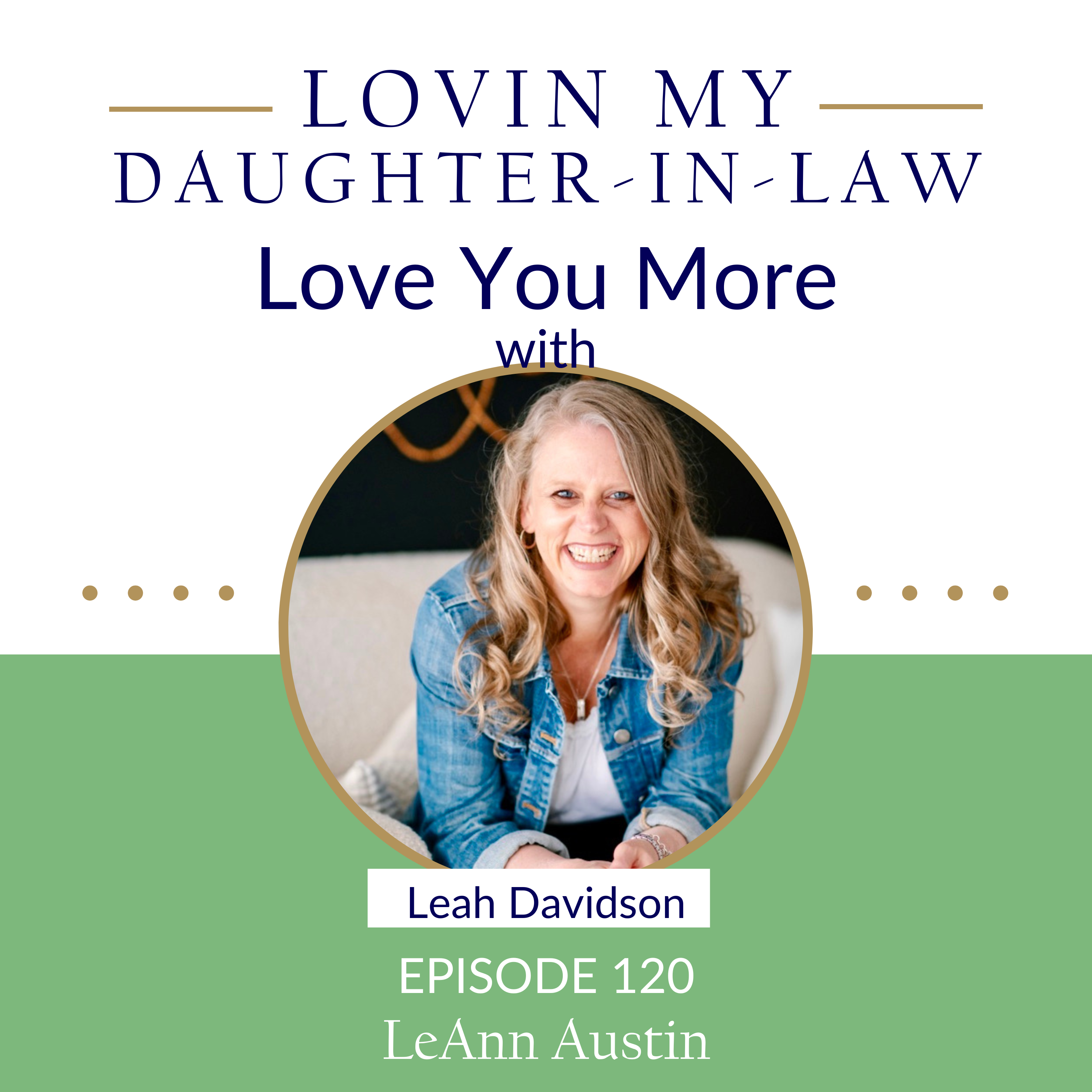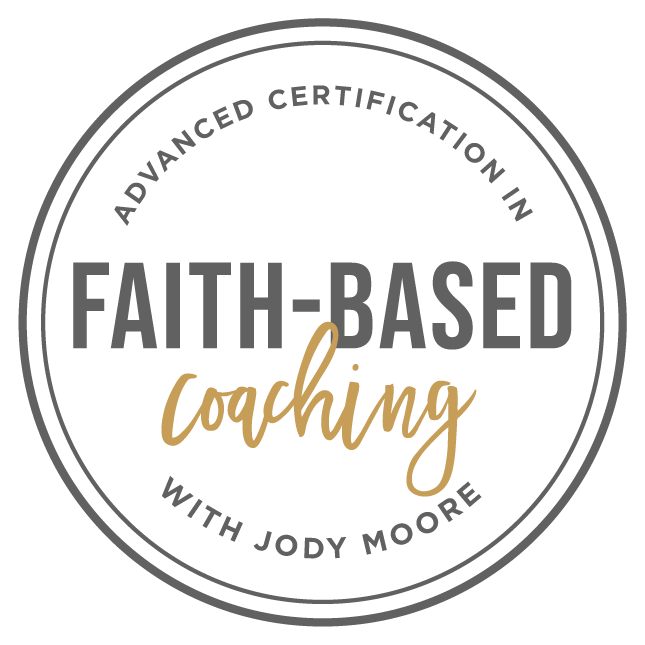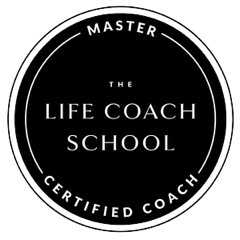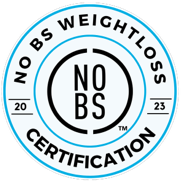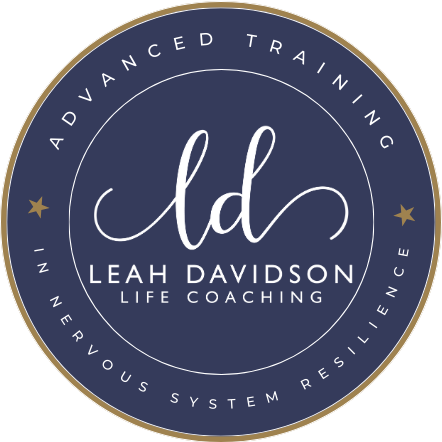The incredible Leah Davidson shares love and relationship insights about mothers-in-law, daughters-in-law, the nervous system, and much more.
Leah will be teaching us how to befriend our nervous system in my Connection Crew Program on June 4th. Now is the perfect time to join Connection Crew, get Leah’s expert teachign about your nervous system, as well as somatic practices that you can implement into your life right now. Plus 30 days in my Connection Crew Program with access to everything, for only $45, which is the best deal ever! Join us HERE
Welcome to Lovin My Daughter-in-law Podcast, where my mother-in-law relationship expert and master certified coach LeAnn Austin, will help you create more love and connection with your daughter-in-law and everyone else you care about.
Hey y’all, welcome to Lovin My Daughter-in-law, episode #120: Love You More with Leah Davidson
I love observing and connecting with other humans. Especially noting how they feel and implement love into their lives and their relationships.
We have the amazing Leah sharing some beautiful love and relationship insights with us today. All right Leah, tell us a little bit about you.
Well, I am a life coach and a speech language pathologist, and I live in Toronto, Ontario, Canada with my husband, Rob, and we are recent empty nesters. I love saying that because it’s almost like I feel like I’m saying we’re recent honeymooners. We’re recent empty nesters. We have a beautiful blended family of five children, three of them are married, two of them come back to the nest every once in a while, and most of them have some storage still in our nest here, but we love them.
And I am passionate about travel, about the nervous system which is my big specialty is, so to speak. I’m passionate about the brain, I’m passionate about relationships, and reading, and learning, and just so many different things.
I admire so many things about that. You know, first off empty nester. Isn’t it amazing? It’s kind of fun. Sometimes it’s like, wait a second. And then, but yeah, I’m not going to say that I haven’t shed some tears and sent some texts into our family chat about like, I miss everybody. I miss the days where I was making lunches, and I can’t believe I’ve ever said that, but yeah for sure it has the ups and downs. Absolutely. And then just all of the things that you’re doing. Like I’m so curious and interested in the whole nervous system and everything, that’s so exciting. So I’m just glad you’re here.
Well, I’ve got five questions today we’ll go through. And the first one is how do you incorporate love into your business and life? And how does that impact your relationships?
So, with that one I was thinking, how do I incorporate? And I think the simplest thing, I just love the people that I work with and I love the people in my life.
And I remember years ago, I was at an amusement park with one of my kids. And so I’ve been a speech pathologist for 25 years. So I have worked quite closely with a lot of people because when normally the people that I work with have experienced traumatic brain injuries. And so I’ll be in their life quite intimately finding out about their life.
And I was at an amusement park and I bumped into one of my clients there and I was with my son. And this client, I was not going to say he’s one of my clients cause there’s confidentiality, but he openly said to my son, your mom is my speech pathologist. And he gave my son some stories and my son’s sort of, he was around 10 or so, so this is a long time ago. And my son just sort of was like yeah, that’s my mom. Yeah, that’s my mom. And we sort of chuckled afterwards as I was talking with him cause I said to him, it’s so important for me to be authentic and to really just be myself.
And I do love most people. I try to love all people. And I think whether you are in my life as my friend, or as my client, or, you know, as part of my family, I try to make love a priority. And I know that sometimes, within a profession, that’s not how things go. We try to separate things, but I have found so much satisfaction and joy in my profession because I love my clients. Now, it also ends up causing some, you know, burnout and compassion fatigue, and that’s all the nervous system stuff, which is why I started learning about that, but I just think I do try to authentically love the people that I’m working with. It just makes it so much more enjoyable to be working with them.
Yeah. Well and you can tell you do because you radiate that. Then it makes people want to connect with you. And you know, I love that. Awesome.
All right. So what is something you love about you and why? Well, one of the things is that authenticity piece, I think. I had another experience with a client who, he was a young client, early 20s when I started working with him. He was a student in university and within the first couple of months, I was also, you know, I’m sort of a motherly figure too so like this 20 something year old doesn’t really wanna work with, and this is going back at least 10 years ago so this 40 something year old woman. And he just said to me, you know what, you annoy me. You’re just so fake and he’s like, you’re smiley and you’re positive and you’re trying to be kind and loving. And I just, it drives me insane.
And I was just like, Oh, okay, well we have a couple of options here. One is you can find yourself a new speech pathologist. I didn’t say it rudely like that, but I was like, it’s okay. Always an option. You don’t have to work with me. And two, I do want you to know, I am genuine and I am authentic. And he was just like, okay, whatever. I ended up working with him about eight years. Wow. And after about year five, I mean, we really had a relationship, where, you know, he trusted me and he shared a lot about things with his life.
And I remember after about year five, I said to him; Do you still think I’m fake and annoying and not genuine? And he’s like, Oh my gosh, I can’t believe you remember that conversation. And he’s like, I’ve thought about that conversation many times. And I just said, it’s fine. It’s totally, I probably would have thought the same thing, but I do love that about myself.
And then I’d say the other thing that I love on more of a personal level is I’m a very committed, loyal person, which can get me into trouble at times. If I say it, I’m going to do it. And that was something I got divorced when my kids were very, very young. And obviously, divorce causes a lot of turmoil in children’s lives and there was a lot of uncertainty in their life.
And my boys used to always say to me, promise, promise, because if I promised, they felt a sense of security. And it was so funny that when I got remarried and we blended our family and my boys had now step siblings. They’re step siblings, in a very loving kind way, used to always joke with them about how they would talk with me and say, promise mom, promise. But the promise was like a reassurance of commitment. And it just allowed me to really be thinking about, I obviously sometimes things happen and I would share that with them too, where I wouldn’t be able to fulfill what I said. But I like to very deliberately and carefully watch what I’m committing to and what I say because I do want to follow through with that. And if I can’t commit to it, then I better not say it, or you know, not hold myself to such a strictness with it, then just be more careful about the words that I use to commit myself.
I love that. I just love how intentional you are about that too. And that’s so tender. The promise promise mom. I love that. Well, and then it became a joke because they would say things around Christmas time and I was like, you’re not. And so they would switch it out. They would say things like brahmas. I brahmas. Which they knew meant that I don’t really promise, but that’s right. Just kidding. Oh, I love it.
All right, so I love talking about connection with others and ourselves. And I think the daughter-in-law relationship is packed full of examples for us to learn from. So any thoughts about being a daughter-in-law or your daughters-in-law?
Oh, you’ve just opened up a can of worms. I have so many thoughts about this, you know, because I’ve been divorced, I’ve had two mother-in-laws in my life, so I got to see, you know, different styles of mother-in-laws and I also have two daughter-in-laws. So I get to see this style, and what I’ve sort of determined over the years is it doesn’t land on the mother-in-law or the daughter-in-law. It is a real relationship. Yes. That requires a lot of give and take.
I know as a daughter-in-law, like I said, I had two, so I was able to, you know, you sort of see what you like and what you don’t like. One of the things that I tried to remind myself of, because both mother-in-laws at some points, quote unquote, “annoyed me”. I would really remind myself that regardless of any issues that I had, this was a woman who was partially responsible for getting my husband into the world and raising him. And there was such a fundamental role that she played. And if I did love my husband, then obviously she did something right. That there is, you know, having that level of respect. So really taking my judgmental lens off.
Sometimes I know that I walked into a situation like, I can’t believe you did that and your family raised you like that. Are you, you know, removing this judgmental lens and just noticing that, families do things differently. And obviously there were some great things. And obviously just like in my own family, there were some things, but I worked hard because I knew that a poor relationship with my mother-in-law would very much impact my children. And that was a concern for me. I never wanted to be in a situation that even if I did have some issues, I didn’t want that to impact my children.
And I think I see that with people. If you have challenges with your mother-in-law, like be careful. It’s generational now. And I’m not saying like for mother-in-laws, if you have situations that were abusive or, you know, actually, my late mother-in-law, she was an alcoholic and we had to set some very firm boundaries with her about being with the kids and so forth. But I also recognize that I set the tone about how we talked about my mother-in-law in even though she has challenges and this was a part of my children. Regardless of my relationships, like genetically nervous system wise, it’s all passed down. So to really be able to respect that. So that’s sort of my views on the mother-in-law.
And then from the perspective of the daughter-in-law, it’s interesting because I feel for my daughter-in-laws because they have some more complications. They’ve stepped into homes that were divorced. So it’s a little bit trickier for them.
I have for one of my daughter-in-laws, my step daughter-in-law, I don’t refer to her as that, but she’s married to my stepson. She did step into a situation that wasn’t really amicable, that we’ve never had a great relationship. And so she is juggling this world of two mother-in-laws who don’t necessarily see eye to eye, but both were heavily involved in raising her son.
So I think when she got married and entered into our family, she wasn’t sure what she was getting into and she was walking on some landmines. And I do feel for her. She’s over the years, beautifully learned how to, you know, just recognize she just openly says, it’s like, my husband has two families. And I have two mother-in-laws. That’s how she handles it.
My other daughter-in-law, her parents are divorced as well, so I think she was a little bit more familiar with all the little land bombs that she was gonna have to, or landmines she was gonna have to walk around. And so that I think made it a little bit easier for her because she understood the dynamics, but I had also known her a little bit longer.
But I think regardless of all those things, I think what has really worked for me or what I’ve tried to do, is establishing a relationship with my daughter-in-laws individually. Not having everything run through my son, or my stepson. Like I want to get to know my daughter-in-laws. Like I love that they’re married to my son and my stepson. I love that. And that they have beautiful relationships and they take care of each other. But I want to know them as people. What, you know, drives them? What are their ambitions? What are their vulnerabilities? And so really trying to take an active interest in their life. And of course, that’s a balancing act too, because they don’t want to be too overly involved. You know, I do feel like as a mother-in-law, you walk on eggshells a little bit, but I’m just like, being open to asking questions, open to having conversations, I want to get to know them, at the same time recognizing that this is their family now. They have their own space.
And I think that can be a transition. I know that with my, when my daughter-in-law married my stepson, it was probably a little bit less of a transition for me because I was never his number one, so to speak. Like he had a biological mother, I was a stepmother, I had a, you know, a prominent role in his life, but I always knew I wasn’t sort of like that number one that all little boys have in my opinion.
With my son, when he got married, I was his number one for many, many, many years. And instead of seeing it as like, she’s come in and she’s taken over and he no longer has me. It really was a, you know, a welcoming of her into the family with both of my daughter-in-laws and also this recognition of you’re his number one now.
I’m thrilled that you’re his number one. I hope that I’ll always have a role in his life. And I feel that the more we embrace our daughter-in-laws, the more we are likely to have some type of role in their lives. Absolutely, and passing that on to them. I love how it is like, now you’re his number one and not holding tight, like, Oh no, what am I going to do?
And we joke about it too. Sometimes if, you know, one of them is having an issue, I’ll be like, well, here’s your number one. But I think those are the things, it’s the combination of really being interested in them as people and not just as partners to my children and allowing them to have the space to build their own family.
It’s also tricky because I think, I look at, it takes a village to raise a family and I look at the benefit of seeking wisdom from our parental figures. I remember when I married my husband, I was in my second marriage, I was in my mid thirties, we both had children. And I was so taken by how my husband talked to his father very, very frequently and asked his dad for advice.
And it was, it was sort of like, you know, things going on at work and he would just share and his dad would sort of give him input. And it wasn’t like my husband needed the advice. And I always thought that was interesting, and I had conversations with my husband about it. And he’s like, I don’t feel like I need to talk to my father, or I want to talk. I like to get his perspective. I like to get his viewpoint.
And I have some, you know, all our kids are different at different stages. And I have some of my kids who I know like to talk to us, our two, the boys who have the daughter-in-laws, they are very much like that. And I hope that my daughter-in-laws know that when they come to us asking, and what do you think? It’s not because they need our permission. It’s not because they can’t, they’re not capable or they can’t talk about it with their partners. Just for some decisions, it is helpful to get some input from people that maybe are a few steps ahead of you or that you respect.
And I think that can be tricky for some relationships. I’ve seen it like in other, and even I have a son-in-law as well. That I think it may be a little bit more challenging, like well, why are you asking your parents? We’re not asking your parents for permission. This is sort of as a family, we’re here to provide. And I think that can be tricky for some of the in-laws, and I really do love how both my daughter-in-laws have totally embraced that.
We make our own decisions in our own family, but I get that my boys are going to want to, you know, our husbands, are gonna wanna maybe talk through things with our parents. Yes. And being able to embrace that.
Well and it makes sense too, when you’re focused on them individually, the daughter-in-laws individually and getting to know them, then that gives them space to be like, okay, wait, they’re not trying to control us. They’re not trying to do any of that. We’re simply, we’re a family and we like to, you know, share our thoughts and get different perspectives. So that is so beautiful. I love that. Yeah.
And I mean, it can be hard because I think daughter-in-laws and son-in-laws are raised in different families. Right. And when we are in different, I think the benefit, and see there’s benefits when you get divorced, when you are divorced and you are a child living in two homes, you start to realize that families do things differently. Yeah. And because it’s your, both are your families, your brain and your nervous system have to adapt to different ways of doing things and create that both ways can be good.
And so when you step into a third or a fourth family, if you’re marrying somebody who is divorced, sometimes it can be hard. Well, why did they do it like that? That’s weird. That they’re not used to having maybe a different viewpoint or a different perspective. You know, kids who have been divorced, they’re sort of like, oh this is one more perspective.
Whereas I think it can be hard for somebody who comes into a new family. Like, well why do they do that? That’s weird that they do that instead of seeing it as, oh this is so cool. It’s a different way. We are going to be able to take from my family, take from his family and create our own version of what we want it to look like within our family. Yes. We get to take all the things that we like and blend them together. I love that so much. Yes.
All right. Well Leah, is there anything else you’d like to share and where can our audience go to find out more about you?
I am on Instagram and Facebook @leahdavidsonlifecoaching, and I have a podcast called Building Resilience. So you can find out all about things there. And we have lots of discussions about relationships and resilience and nervous system and brain and mindset and all sorts of good things. I love it. And I’ll put those in the show notes as well.
I am so excited because Leah will be coming to my Connection Crew Program and teaching in June, on June 4th. So anyone, if you want to come to an amazing class and learn to befriend your nervous system, join Connection Crew today because then you get to experience the nervous system with Leah, as well as 30 days in my program. So I encourage you to do that if that’s something you’re interested in as well. Join HERE
All right. So last question, what is your favorite question or quote about love and how have you used it for yourself and in your relationships? I couldn’t come up with a formal quote, but I just came up with love you more. And I was trying to think of, you know, a formal quote and I ended up just looking in our dining room. We have a big sign over our entrance into it that says love you more. And then in our family room, we have a pillow on it that says love you more. And I had bought those because it is something that I have just always said that when my kids say love you. It’s love you more.
Every note that I have ever signed is love you more. I always wanted my kids to feel that it’s immeasurable how much I love them. That even if they think that, you know, I know you love me. No, no, no, no. I love you more. So it always became a joke. I was just like, I can be competitive too and I will always win with this one. I always love you more.
And then it sets for me the challenge that really, the solution for so many things is just to love more, and when we, you know, are confronted with challenges in relationships. I’m trying to figure out what to do. Well, what would it look like if I just loved more? And that usually puts me in the right direction of where I need to be going. Hmm, that is so beautiful.
Love you more. Hmm, something to think about. Ah, thank you Leah for sharing your love insights with us. I love it. Thanks for having me. Ah, my pleasure. Have a good one y’all. And here’s to love you more, and connection.
Leah will be teaching our class in Connection Crew Program on June 4th, so if you want to come and enjoy this incredible experience with her and learn how to befriend your nervous system, Join us. It’s only 45 bucks for Leah’s expert teaching and somatic practices that you can implement into your life right now, plus 30 days of my Connection Crew Program, which is the best deal ever. So join us today HERE
Have a good one y’all.
If you enjoyed this podcast, check out LeAnn’s Connection Crew Program where she coaches and teaches a variety of ways to have more fun and connection in our relationships.
LeAnn also shares the five secrets she uses to create a beautiful relationship with me and her other daughter-in-law. She’s the real deal. I highly recommend you check this out. And if you want one easy question you can keep in your back pocket and use to increase the love you feel for your daughter-in-law today, go to leannaustin.com and get the one question.

